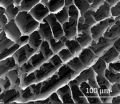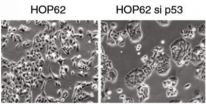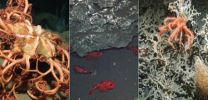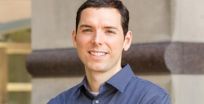(Press-News.org) According to findings from a new study by University of Chicago Booth School of Business Professor Jane Risen, and Chicago Booth doctoral student Juliana Schroeder, it may at least be a start.
Risen and Schroeder conducted research on Seeds of Peace, one of the largest peacebuilding programs that brings together teenagers from conflict regions, including Israelis and Palestinians, every year for three weeks in rural Maine. They tracked participants' feelings and attitudes toward the other national group for three years with three separate cohorts of campers. They found a profound effect of camp relationships: Campers who formed a close relationship with someone from the "other side" of their conflict (such as a Palestinian forming a relationship with a Jewish Israeli) developed more positive feelings toward all members of that group, and were more likely to retain those feelings long after returning home.
The researchers used surveys to measure campers' attitudes toward the other side both before and after camp. They then surveyed the campers again when they had been back in their home countries for nine months, and found that the camp still affected participants' attitudes about the other side. Their paper, "Befriending the enemy: Outgroup friendship longitudinally predicts intergroup attitudes in a co-existence program for Israelis and Palestinians," was published recently in Group Processes and Intergroup Relations.
"Nearly every camper has a more positive attitude on the last day of camp than he or she did on the first day," Risen says. "Of course, once the teenagers get home, the positive emotions they developed during their time away fades, but most showed more positive feelings toward the outgroup—even months later—than they did before they attended the program."
One of the things that makes the camp successful is that the young people are taken out of their homes to a neutral location, which allows them to get away from family and societal pressures. This relocation also offers them the opportunity to form new and different types of friendships, and it is these friendships that Schroeder and Risen demonstrate may be the key to improved relations between the two groups.
The researchers' data shows that campers who formed a close relationship with at least one member from the other side at camp, and especially those who maintained those relationships once the program was over, retained the strongest feelings of positivity toward the other side. In fact, they found that making and maintaining a relationship with an outgroup member for a year was one of the best predictors of
warmer feelings toward the other group.
"When Seeds of Peace was started, its founder's advice to campers was that they should make one friend," Risen says. "But after looking at the results of our work, we would modify his advice slightly to: make and keep just one friend."
INFORMATION:
Could summer camp be the key to world peace?
New study finds befriending one member of 'enemy' group can predict long-term attitudes toward whole group
2014-07-29
ELSE PRESS RELEASES FROM THIS DATE:
Tough foam from tiny sheets
2014-07-29
HOUSTON – (July 29, 2014) – Tough, ultralight foam of atom-thick sheets can be made to any size and shape through a chemical process invented at Rice University.
In microscopic images, the foam dubbed "GO-0.5BN" looks like a nanoscale building, with floors and walls that reinforce each other. The structure consists of a pair of two-dimensional materials: floors and walls of graphene oxide that self-assemble with the assistance of hexagonal boron nitride platelets.
The researchers say the foam could find use in structural components, as supercapacitor and battery electrodes ...
Research may explain how foremost anticancer 'guardian' protein learned to switch sides
2014-07-29
Cold Spring Harbor, NY -- Researchers at Cold Spring Harbor Laboratory (CSHL) have discovered a new function of the body's most important tumor-suppressing protein. Called p53, this protein has been called "the guardian of the genome." It normally comes to the fore when healthy cells sense damage to their DNA caused by stress, such as exposure to toxic chemicals or intense exposure to the sun's UV rays. If the damage is severe, p53 can cause a cell to commit preprogrammed cell-death, or apoptosis. Mutant versions of p53 that no longer perform this vital function, on the ...
Study: Pediatric preventive care guidelines need retooling for computerized format
2014-07-29
INDIANAPOLIS -- With the increasing use of electronic medical records and health information exchange, there is a growing demand for a computerized version of the preventive care guidelines pediatricians use across the United States. In a new study, researchers from the Indiana University School of Medicine and the Regenstrief Institute report that substantial work lies ahead to convert the American Academy of Pediatrics' Bright Future's guidelines into computerized prompts for physicians, but the payoff has the potential to significantly benefit patients from birth to ...
Menu secrets that can make you slim by design
2014-07-29
If you've ever ordered the wrong food at a restaurant, don't blame yourself; blame the menu. What you order may have less to do with what you want and more to do with a menu's layout and descriptions.
After analyzing 217 menus and the selections of over 300 diners, the Cornell study published this month in the International Journal of Hospitality Management showed that when it comes to what you order for dinner, two things matter most: what you see on the menu and how you imagine it will taste.
First, any food item that attracts attention (with bold, hightlighted or ...
From 'Finding Nemo' to minerals -- what riches lie in the deep sea?
2014-07-29
As fishing and the harvesting of metals, gas and oil have expanded deeper and deeper into the ocean, scientists are drawing attention to the services provided by the deep sea, the world's largest environment. "This is the time to discuss deep-sea stewardship before exploitation is too much farther underway," says lead-author Andrew Thurber. In a review published today in Biogeosciences, a journal of the European Geosciences Union (EGU), Thurber and colleagues summarise what this habitat provides to humans, and emphasise the need to protect it.
"The deep sea realm is so ...
Genomic analysis of prostate cancer indicates best course of action after surgery
2014-07-29
(PHILADELPHIA) – There is controversy over how best to treat patients after they've undergone surgery for prostate cancer. Does one wait until the cancer comes back or provide men with additional radiation therapy to prevent cancer recurrence? Now, a new study from Thomas Jefferson University shows that a genomic tool can help doctors and patients make a more informed decision.
"We are moving away from treating everyone the same," says first author Robert Den, M.D., Assistant Professor of Radiation Oncology and Cancer Biology at Thomas Jefferson University. "Genomic ...
Optimum inertial self-propulsion design for snowman-like nanorobot
2014-07-29
Scale plays a major role in locomotion. Swimming microorganisms, such as bacteria and spermatozoa, are subjected to relatively small inertial forces compared to the viscous forces exerted by the surrounding fluid. Such low-level inertia makes self-propulsion a major challenge. Now, scientists have found that the direction of propulsion made possible by such inertia is opposite to that induced by a viscoelastic fluid. These findings have been published in EPJ E by François Nadal from the Alternative Energies and Atomic Energy Commission (CEA), in Le Barp, France, and colleagues. ...
Team studies the social origins of intelligence in the brain
2014-07-29
CHAMPAIGN, Ill. — By studying the injuries and aptitudes of Vietnam War veterans who suffered penetrating head wounds during the war, scientists are tackling -- and beginning to answer -- longstanding questions about how the brain works.
The researchers found that brain regions that contribute to optimal social functioning also are vital to general intelligence and to emotional intelligence. This finding bolsters the view that general intelligence emerges from the emotional and social context of one's life.
The findings are reported in the journal Brain.
"We are ...
NOAA: Alaska fisheries and communities at risk from ocean acidification
2014-07-29
Ocean acidification is driving changes in waters vital to Alaska's valuable commercial fisheries and subsistence way of life, according to new NOAA-led research that will be published online in Progress in Oceanography.
Many of Alaska's nutritionally and economically valuable marine fisheries are located in waters that are already experiencing ocean acidification, and will see more in the near future, the study shows. Communities in southeast and southwest Alaska face the highest risk from ocean acidification because they rely heavily on fisheries that are expected to ...
Preterm children's brains can catch up years later
2014-07-29
There's some good news for parents of preterm babies – latest research from the University of Adelaide shows that by the time they become teenagers, the brains of many preterm children can perform almost as well as those born at term.
A study conducted by the University's Robinson Research Institute has found that as long as the preterm child experiences no brain injury in early life, their cognitive abilities as a teenager can potentially be as good as their term-born peers.
However, the results of the study, published in this month's issue of The Journal of Pediatrics, ...
LAST 30 PRESS RELEASES:
Why do we get a skip in our step when we’re happy? Thank dopamine
UC Irvine scientists uncover cellular mechanism behind muscle repair
Platform to map living brain noninvasively takes next big step
Stress-testing the Cascadia Subduction Zone reveals variability that could impact how earthquakes spread
We may be underestimating the true carbon cost of northern wildfires
Blood test predicts which bladder cancer patients may safely skip surgery
Kennesaw State's Vijay Anand honored as National Academy of Inventors Senior Member
Recovery from whaling reveals the role of age in Humpback reproduction
Can the canny tick help prevent disease like MS and cancer?
Newcomer children show lower rates of emergency department use for non‑urgent conditions, study finds
Cognitive and neuropsychiatric function in former American football players
From trash to climate tech: rubber gloves find new life as carbon capturers materials
A step towards needed treatments for hantaviruses in new molecular map
Boys are more motivated, while girls are more compassionate?
Study identifies opposing roles for IL6 and IL6R in long-term mortality
AI accurately spots medical disorder from privacy-conscious hand images
Transient Pauli blocking for broadband ultrafast optical switching
Political polarization can spur CO2 emissions, stymie climate action
Researchers develop new strategy for improving inverted perovskite solar cells
Yes! The role of YAP and CTGF as potential therapeutic targets for preventing severe liver disease
Pancreatic cancer may begin hiding from the immune system earlier than we thought
Robotic wing inspired by nature delivers leap in underwater stability
A clinical reveals that aniridia causes a progressive loss of corneal sensitivity
Fossil amber reveals the secret lives of Cretaceous ants
Predicting extreme rainfall through novel spatial modeling
The Lancet: First-ever in-utero stem cell therapy for fetal spina bifida repair is safe, study finds
Nanoplastics can interact with Salmonella to affect food safety, study shows
Eric Moore, M.D., elected to Mayo Clinic Board of Trustees
NYU named “research powerhouse” in new analysis
New polymer materials may offer breakthrough solution for hard-to-remove PFAS in water
[Press-News.org] Could summer camp be the key to world peace?New study finds befriending one member of 'enemy' group can predict long-term attitudes toward whole group





